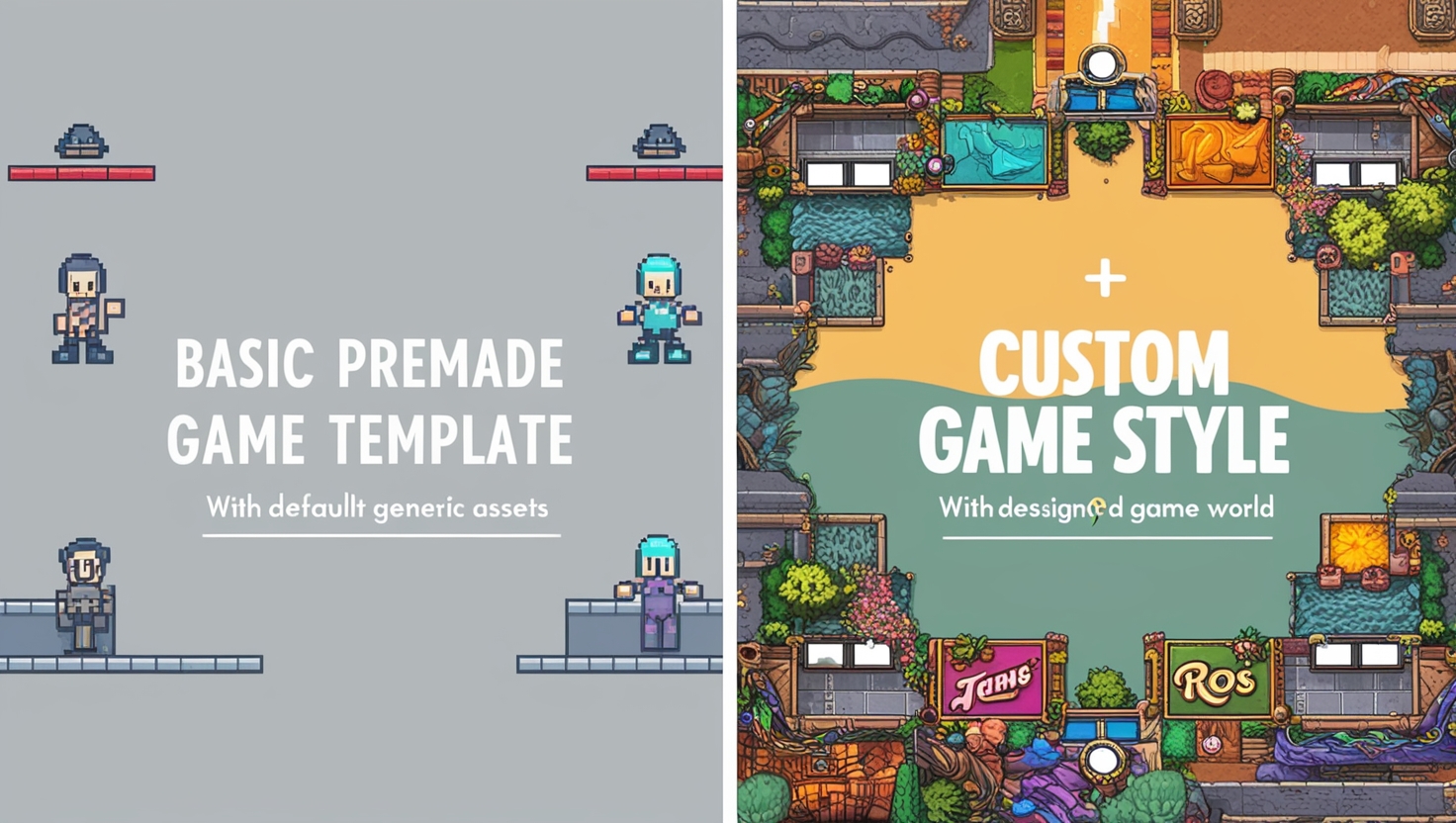
Game development can be time-consuming, complex, and expensive. Game templates are, therefore, a popular option for beginners and even small enterprises looking to get off the ground quickly. A ready-to-use system, reduced expenses, and a quicker launch are what they guarantee.
But are they really the right choice for your project? Since Melior Games has worked on both custom-built and template-based projects, we know exactly when templates work well and when they can work against you.
✅ When Game Templates Make Sense
In some circumstances, templates can be a wise decision.
- For learning and experimentation
If you’re starting in game development, templates are great for learning the structure of a game. You can modify code, share resources, and learn by doing without starting from scratch.
- For game sessions or prototypes
Templates can help you create something playable in hours rather than weeks when time is of the essence and speed is the aim. They’re perfect for quick experiments.
- For simple, low-budget projects
A template can give you all you need if your game concept is simple and doesn’t need much modification. Casual puzzle or hyper-casual mobile projects are sometimes a good fit for this.
⚠️ When templates don’t work well
Although templates can initially save you time, they have drawbacks that may end up costing you money.
- When you need scalability
Templates aren’t designed to grow. Significant rewrites are frequently needed to add multiplayer, progression systems, or real-time updates.
- When you want a unique design
Templates usually come with pre-made art, UI, and mechanics. If you want your game to stand out, you’ll quickly run into creative restrictions.
- When you plan long-term support
Maintaining and expanding a template-based project is often more expensive than building clean, custom systems from the start. The “shortcut” becomes a trap.
🎯 Melior Games’ Recommendation
We believe templates can be useful for testing ideas, learning, and very small projects. Custom development is the safer option, though, if your objective is to create a game for actual players, draw in investors, or grow into something larger.
Even for MVPs, we recommend starting from scratch. This way, you have a flexible foundation that can grow with your project—without costly rewrites or redesigns later.
✅ Final Thoughts
Templates can give you a head start, but they’re rarely the right long-term solution. At Melior Games, we help clients choose the smartest starting point for their project—whether that’s a quick PoC, an MVP, or full-scale development from scratch.
👉 Contact us today to discuss your idea, and we’ll help you decide the best way forward.




